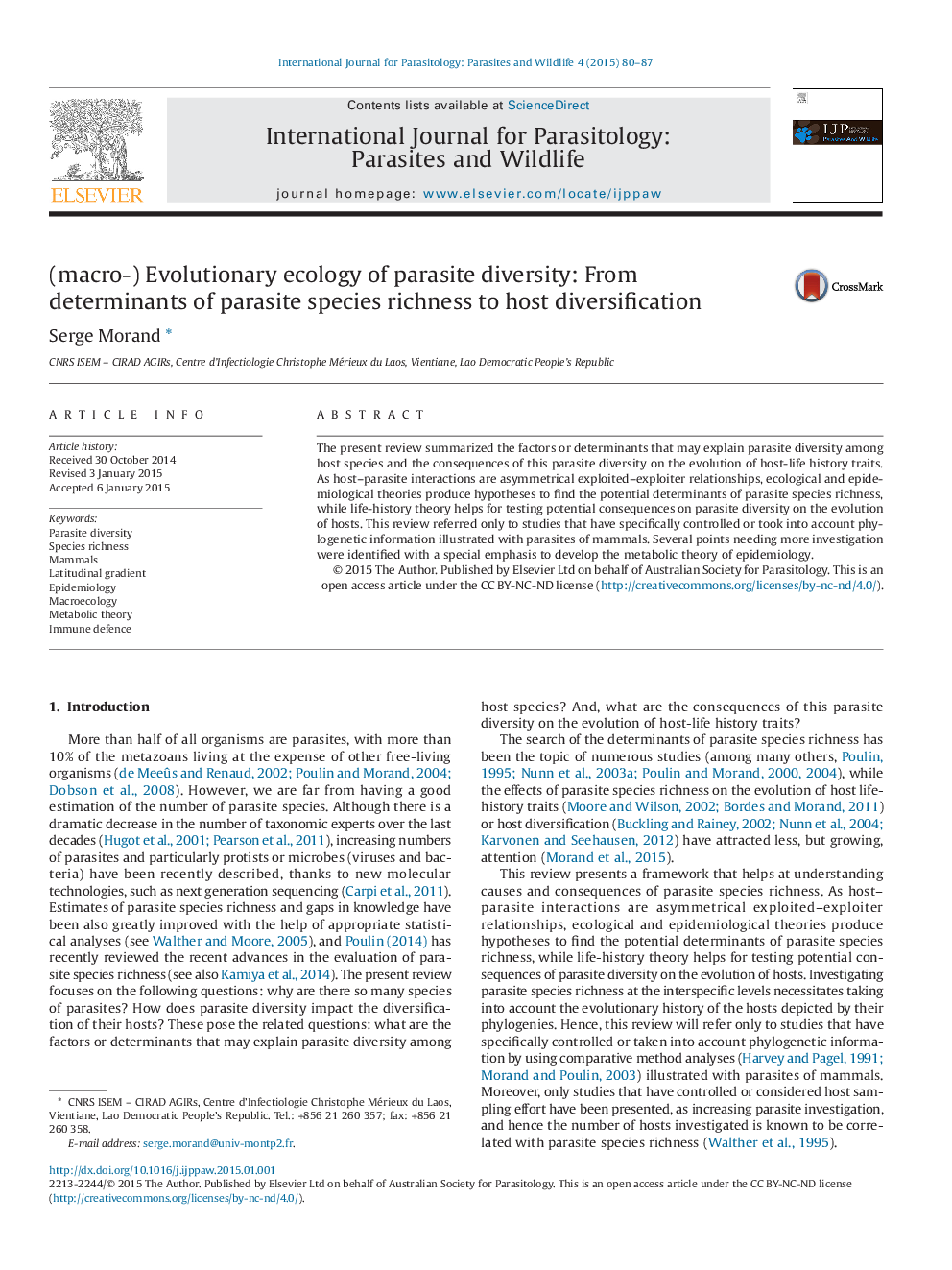| Article ID | Journal | Published Year | Pages | File Type |
|---|---|---|---|---|
| 2055171 | International Journal for Parasitology: Parasites and Wildlife | 2015 | 8 Pages |
•This review summarized the factors explaining parasite diversity among host species.•Ecological and epidemiological theories help to find these potential factors.•Life-history theory helps to test effects of parasite richness on hosts.•This review is illustrated with comparative studies on parasites of mammals.
The present review summarized the factors or determinants that may explain parasite diversity among host species and the consequences of this parasite diversity on the evolution of host-life history traits. As host–parasite interactions are asymmetrical exploited–exploiter relationships, ecological and epidemiological theories produce hypotheses to find the potential determinants of parasite species richness, while life-history theory helps for testing potential consequences on parasite diversity on the evolution of hosts. This review referred only to studies that have specifically controlled or took into account phylogenetic information illustrated with parasites of mammals. Several points needing more investigation were identified with a special emphasis to develop the metabolic theory of epidemiology.
Graphical AbstractAsymmetry in host and multi-parasite interactions as a framework for investing the likely determinants of parasite species richness and its ecological and evolutionary impacts on hostFigure optionsDownload full-size imageDownload as PowerPoint slide
